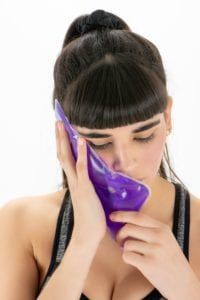Tooth Extractions
Dental extractions, known as tooth extractions or simply extractions, are dental procedures that are used to remove problematic teeth from the mouth. Extractions are generally a last resort treatment that is used when there are no other available means of restoring the tooth. Depending on the location in the mouth and the condition of the affected tooth, there are two types of extractions that may be performed:
- Simple: during a simple extraction, the entire tooth is visible above the gum line with a mostly straight alignment. To perform a simple extraction, your dentist will use what is called an elevator tool in order to gradually rock and lift the tooth out of the socket.
- Surgical: surgical extractions are performed when the affected tooth is not fully visible above the gum line, meaning that it is fully or partially impacted. In most cases, fully or partially impacted teeth are usually wisdom teeth. To remove such a tooth, the dentist first needs to make an incision in the gums to access the tooth, before breaking it into pieces and removing each piece one by one.

Did You Know?Although removing a tooth or multiple teeth may seem counterintuitive at first, tooth extractions can actually improve your oral health. Removing teeth that are severely damaged or decayed prevents bacteria from spreading to other areas of the mouth or damaging other teeth, while removing overcrowded teeth prevents alignment and jaw problems. |
Frequently Asked Questions
Do I need a tooth extraction?
Tooth extractions can be performed for various reasons including severely damaged or decayed teeth, to alleviate overcrowding, to prepare for orthodontic treatment, and to remove impacted wisdom teeth. With that being said, you may need a tooth extraction if your tooth is severely damaged or decayed, as well as impacted in the gums. Additionally, you may need a tooth extraction if you are preparing for orthodontic treatment and have significant overcrowding caused by too many teeth. Ultimately, however, the only way to determine if you need a tooth extraction, is to schedule a consultation with your North Vancouver Dentist.
What can I expect when having a tooth extraction at my North Vancouver Dental Office?

When having a tooth extraction at your North Vancouver Dental office, you can expect that you will be made comfortable with dental sedation and anesthetics. Varying levels of dental sedation may be used depending on your demeanor and the type and extent of the extraction procedure. In most cases, a “twilight Sleep’ will be used to keep you awake, but relaxed.
Once you have been made comfortable, the procedure will be carried out using either the simple or surgical technique. While some people report feeling pressure during this phase, no one has reported feeling any pain or discomfort. After the procedure is over, your mouth will be stuffed with gauze at the extraction sites to stop the bleeding and encourage the formation of a protective clot over the extraction site.
What can I expect after having a tooth extraction?
After having a tooth extraction, you can expect to regain awareness as the dental sedation wears off. Depending on the type of sedation used, you may experience residual sleepiness throughout the remainder of the day. As mentioned before, your mouth will have gauze placed at the extraction sites. It is important to keep this gauze in place and to follow any post-operative instructions provided to you by your North Vancouver dentist.
As the dental anesthetics wear off, you may experience some minor discomfort. Your dentist may prescribe pain medication or they may recommend over the counter medication. It is advised to take any pain medication before the dental anesthetic wears off entirely. You can also use an ice pack to relieve pain and swelling. However, avoid heat for the first few days because it can cause bleeding.
You will also need to maintain a temporary soft foods diet until the extraction sites heal. For the first few days, cool foods are recommended because they are soothing. As your dentist instructs, you can slowly start introducing harder foods. You should also avoid foods that can break into small pieces because these pieces can get stuck in the extraction site.











